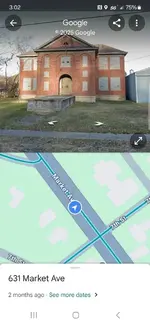chalkoutline
Jr. Member
- #1
Thread Owner
Hello,
Since TB was well educated and wealthy, he would have attended one of the two high schools in Virginia. Both were started by churches, so he would have learned Latin.
Since Latin uses the same alphabet as English, could TB have numbered a Latin document and then used those numbers to generate an English message?
If treasure hunters have been assuming TB only used English documents, this could explain why not one has been successful.
TB could have generated a message in lesson but there is no indication that Robert Morriss had the ability to read it and why TB would have created an English message.
Since TB was well educated and wealthy, he would have attended one of the two high schools in Virginia. Both were started by churches, so he would have learned Latin.
Since Latin uses the same alphabet as English, could TB have numbered a Latin document and then used those numbers to generate an English message?
If treasure hunters have been assuming TB only used English documents, this could explain why not one has been successful.
TB could have generated a message in lesson but there is no indication that Robert Morriss had the ability to read it and why TB would have created an English message.
Last edited:




